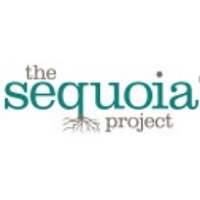 Consumers Share Experiences, Priorities, and Recommendations To Improve Consumer Access, Usability, and Sharing of Electronic Health Information
Consumers Share Experiences, Priorities, and Recommendations To Improve Consumer Access, Usability, and Sharing of Electronic Health Information
The Sequoia Project (@sequoiaproject), a non-profit and trusted advocate for nationwide health information exchange, published a report of findings from its Consumer Voices Workgroup, an initiative launched in December 2022 to understand patient and caregiver experiences accessing, using, and sharing health information.
Among the findings, the benefits of interoperability have yet to be felt by the everyday consumer in ways both imagined and technologically possible despite years of hard work and progress.
“We’re incredibly appreciative of our consumer workgroup members who shared their personal stories with us,” said Mariann Yeager, CEO of The Sequoia Project. “That a diverse group of people had similar experiences tells us the barriers we must overcome are not isolated to a certain region of the country, particular health systems, or specific patient portals. The barriers are pervasive and national in scope.”
Findings include people not easily having access to their own health records, not being able to understand the records they have access to, and not being able to share their records without telephone calls, paper forms, fax machines, and sometimes even going in-person to their providers’ offices.
“The consequences of the administrative burden placed on patients, caregivers, and care partners can be stressful, painful, and life-threatening,” says Dr. Grace Cordovano, BCPA, founder of Enlightening Results, and co-chair of the Consumer Voices Workgroup. “It’s unconscionable that the barriers people face are preventable with existing technology; it doesn’t have to be this hard.”
The Consumer Voices Workgroup developed recommendations for consideration by the healthcare and healthcare information technology industry. Bottomline, people want all their health records in one place, organized so they can find what they need when they need it, and written in plain language so they can understand it, with the ability to share as they wish.
“It isn’t surprising that people expect a similar and reasonable amount of digital ease from their healthcare providers as experienced with other consumer services,” said Shannah Koss, consumer advocate, president of Koss on Care LLC, and co-chair of the Consumer Voices Workgroup. “The more chronic or serious health conditions people have, the more critical accessing, using, and sharing their health records becomes. Unfortunately, the more providers a person sees, the more scattered their health information is.”
The workgroup findings reveal a lack of awareness by everyday people of their rights to access their own health records, how and with whom their information is exchanged, and the federal entities that provide industry guidance and oversight.
The Consumer Voices Workgroup report of findings will be the launchpad for The Sequoia Project’s Consumer Engagement Strategy Workgroup to develop short- and long-term cross-industry strategies for consumer engagement, access, usability, education, and policy. This new workgroup is currently recruiting participants.
“We heard from our consumers. Now it’s time to act on what they said,” said Yeager. “We are eager to convene subject matter experts who can implement meaningful changes to improve health information access for patients, caregivers, and care partners.”
About The Sequoia Project
The Sequoia Project is a non-profit, 501c3, public-private collaborative chartered to advance implementation of secure, interoperable nationwide health information exchange. The Sequoia Project focuses on solving real-world interoperability challenges and brings together public and private stakeholders in forums such as the Interoperability Matters cooperative to overcome barriers. The Sequoia Project serves as the Recognized Coordinating Entity (RCE) for the Office of the National Coordinator for Health IT’s Trusted Exchange Framework and Common Agreement (TEFCA), for which it will develop, implement, and maintain the Common Agreement component of TEFCA and operationalize the Qualified Health Information Network (QHIN) designation and monitoring process.
